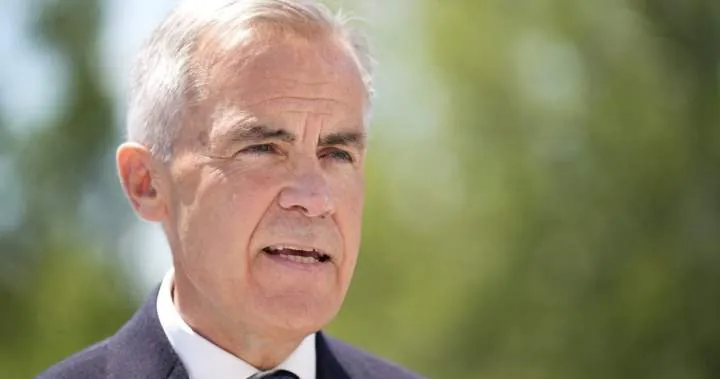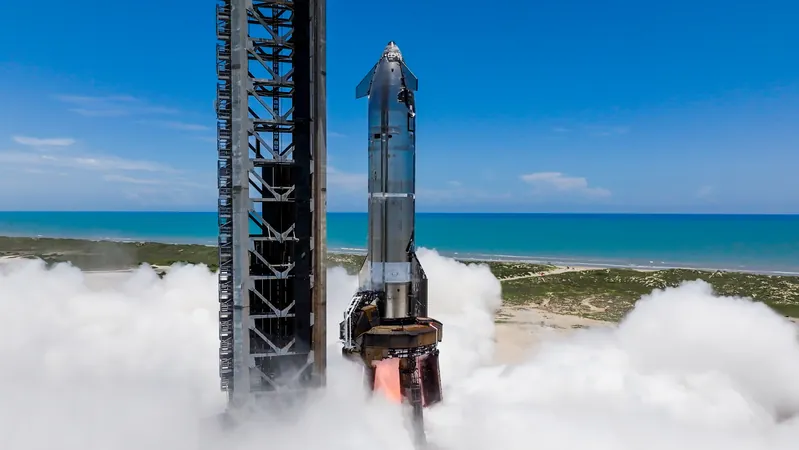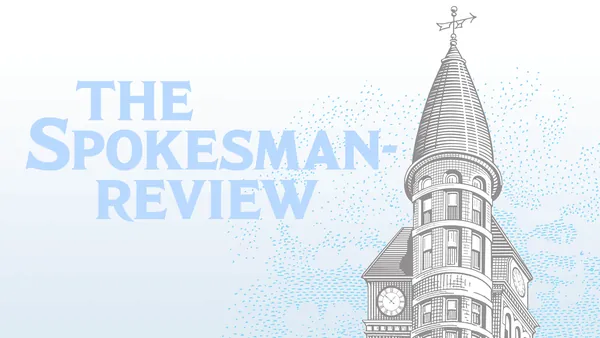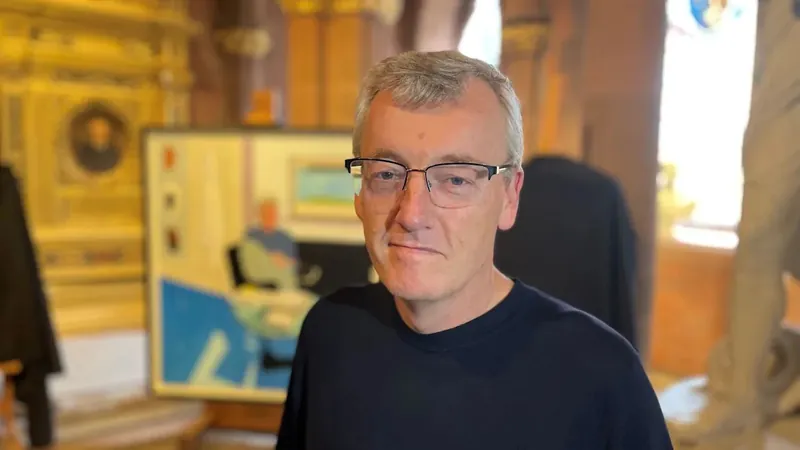
Trapped in a Digital Illusion: The Crisis of Climate Models
2025-07-03
Author: Jacques
How Did Climate Get Trapped Inside a Computer?
In a thought-provoking piece, Rob Lewis explores the concerns raised by renowned Spanish scientist Millán Millán about the inadequacies of existing climate models. Millán, a staunch critic of these models, contends they fail to capture the true severity of impending climate crises. His insights, echoed by Indigenous knowledge over millennia, reveal a profound truth: changes in land use directly influence climate change.
The Missing Elements in Climate Predictions
Author Erica Gies, in her 2025 book "Water Always Wins," argues that climate models often overlook critical factors, such as the role of flora in regulating moisture in the air. She asserts that human-induced land changes are significant contributors to floods and droughts. Judith Schwartz, another prominent voice, agrees, emphasizing that focusing only on carbon levels neglects essential ecosystem functions that stabilize our climate.
From Holistic Understanding to Starry-Eyed Data Dependency
Historically, climate science recognized two crucial aspects: CO2 emissions and land use changes. However, the advent of powerful computing in the late twentieth century shifted the focus toward rigid data models. It marked a disturbing transition where everything began to prioritize calculability over ecological complexity—a trend leaving softer science, such as ecology, in the shadows.
AI: The Double-Edged Sword
In the race to develop Artificial General Intelligence, our thirst for convenience often leads us to overlook fundamental truths. Elon Musk's AI, Grok, displayed this quandary by trivializing significant human experiences, demonstrating the disconnect that modern technology has fostered. AI models crave structured data but struggle with the chaotic nature of human experience and language.
A Dangerous Disconnection from Nature
As urbanization heightens, we risk losing our connection to nature, leading to a simplification of thought and a diminishment of our understanding of the planet's complexity. The rapid digital transition alienates us from reality, pulling us further into familiar screens while pushing wild nature towards invisibility. This phenomenon has dire implications for our well-being and the environment.
Civilization on the Brink of Collapse?
Experts warn that if we continue down this data-driven obsession, a collapse that may benefit nature could be on the horizon, as over-dependence on technology strains our resources and the very systems that sustain life. The irony? The technological wonders designed to help us may become our downfall, revealing the inherent fragility of the digital world against natural forces.
Rediscovering Wisdom in an Era of Hyper-Information
Klaas van Egmond, a philosopher and geoscientist, reminds us of the urgent need to reconnect with holistic approaches in environmental science that prioritize ecosystem understanding as crucial as physical data. He warns against the overconfidence in technology and encourages the integration of softer sciences to truly grasp the intricacies of climate and ecological stability.
Is the Answer Hidden in Simplicity?
As society becomes ensnared by the allure of advanced computing, we must seek to diminish rather than amplify our dependency on digital models. By grounding ourselves in nature and embracing complexity over simplicity, we may unearth a much-needed path to sustainability. The challenge lies in reinstating our understanding of the natural world unclouded by algorithms and data.
The Call for a New Perspective on Knowledge
Vandana Shiva's insights on knowledge transitioning from wisdom to fragmented information echo the notion that our current system is cultivating a generation of partial beings, devoid of genuine understanding. As we grapple with vast data, we must remember our interconnectedness with the wild world that surrounds us and the necessity of learning from it, rather than trying to quantify it.
Conclusion: Can We Escape the Digital Cage?
To navigate the tumultuous waters of environmental crisis and societal disconnection, we must acknowledge our limitations. Embracing Indigenous wisdom, humility, and the imperceptible aspects of life could pave the way for a revitalized understanding of our planet. It’s time we realize that not everything can or should be measured—and that our relentless pursuit of calculability might just be our greatest folly.









 Brasil (PT)
Brasil (PT)
 Canada (EN)
Canada (EN)
 Chile (ES)
Chile (ES)
 Česko (CS)
Česko (CS)
 대한민국 (KO)
대한민국 (KO)
 España (ES)
España (ES)
 France (FR)
France (FR)
 Hong Kong (EN)
Hong Kong (EN)
 Italia (IT)
Italia (IT)
 日本 (JA)
日本 (JA)
 Magyarország (HU)
Magyarország (HU)
 Norge (NO)
Norge (NO)
 Polska (PL)
Polska (PL)
 Schweiz (DE)
Schweiz (DE)
 Singapore (EN)
Singapore (EN)
 Sverige (SV)
Sverige (SV)
 Suomi (FI)
Suomi (FI)
 Türkiye (TR)
Türkiye (TR)
 الإمارات العربية المتحدة (AR)
الإمارات العربية المتحدة (AR)